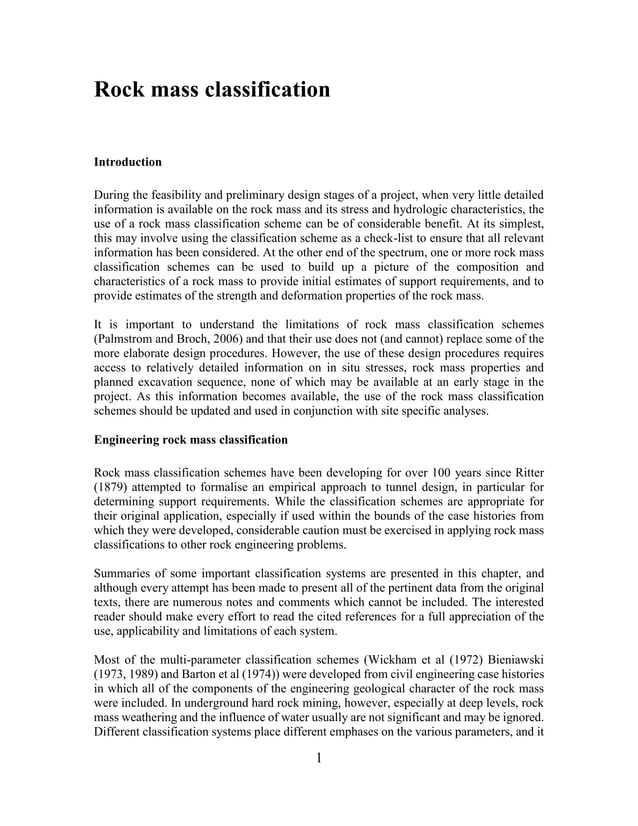OpenAI And ChatGPT: The FTC Investigation Explained

Table of Contents
The FTC's Authority and Concerns
The FTC's investigation into OpenAI and ChatGPT stems from legitimate concerns about the potential misuse of this powerful technology. The agency, tasked with protecting consumers and ensuring fair competition, is scrutinizing several key areas.
Data Privacy and Security
A central concern revolves around data privacy and security. ChatGPT, like other large language models, requires massive datasets for training. This raises questions about:
- Data collection practices: How is OpenAI collecting and using user data, and is this collection transparent and compliant with existing regulations?
- User consent: Do users fully understand how their data is being used, and have they provided informed consent?
- Data breaches: What security measures are in place to protect user data from unauthorized access or breaches?
- Potential vulnerabilities: Are there any vulnerabilities in ChatGPT's architecture that could expose sensitive user information?
The potential for misuse of personal data is significant. The vast amounts of data used to train ChatGPT could be exploited for malicious purposes if security measures are inadequate, leading to serious privacy violations for users.
Consumer Protection Issues
Beyond data privacy, the FTC is also concerned about potential harms to consumers resulting from the use of ChatGPT. These include:
- Misinformation spread by ChatGPT: The model's ability to generate convincing but inaccurate information poses a risk of widespread misinformation.
- Biased outputs: Algorithmic bias can lead to discriminatory or unfair outcomes, impacting different demographic groups disproportionately.
- Potential for fraud or scams: ChatGPT could be used to create convincing phishing emails or other fraudulent content, leading to financial losses for consumers.
The FTC's role is crucial in mitigating these risks and ensuring that consumers are protected from potentially harmful uses of AI technologies like ChatGPT.
Algorithmic Bias and Fairness
The FTC's investigation likely includes a thorough examination of algorithmic bias embedded within ChatGPT's algorithms. This bias can manifest in various ways, leading to unfair or discriminatory outcomes:
- Examples of potential biases: ChatGPT may reflect existing societal biases present in the data it was trained on, perpetuating stereotypes and inequalities.
- Challenges in mitigating bias: Identifying and removing bias from large language models is a complex and ongoing challenge.
- Implications for different demographic groups: Biased outputs can disproportionately affect marginalized communities, exacerbating existing social inequalities.
Addressing algorithmic bias is crucial for ensuring fairness and equity in the use of AI technologies. The FTC is interested in understanding how OpenAI is addressing these concerns and whether its mitigation strategies are sufficient.
OpenAI's Response to the Investigation
OpenAI has publicly acknowledged the FTC's investigation. Their response includes:
OpenAI's Statements and Actions
- Public responses: OpenAI has released statements expressing commitment to addressing the FTC's concerns and ensuring responsible AI development.
- Internal reviews: They have likely conducted internal reviews of their data handling practices, algorithm development, and user safeguards.
- Policy changes: OpenAI might have implemented or announced policy changes aimed at improving data privacy and security.
- Updates to ChatGPT's functionality: The company might have made adjustments to ChatGPT's capabilities to mitigate risks related to misinformation or biased outputs.
The effectiveness of OpenAI's response remains to be seen and will be a crucial element of the FTC's evaluation.
Potential Future Changes to OpenAI's Practices
The FTC investigation could lead to significant changes in OpenAI's practices, including:
- Increased transparency: Greater transparency in data collection and usage practices.
- Improved data security measures: More robust security protocols to prevent data breaches and unauthorized access.
- Enhanced bias detection and mitigation strategies: Sophisticated methods for identifying and mitigating algorithmic bias.
These potential changes could significantly impact OpenAI's business model and development strategies, potentially leading to slower innovation but ultimately fostering greater trust and responsible AI development.
Implications for the Future of AI and Regulation
The FTC's investigation into OpenAI and ChatGPT sets a significant precedent for the future regulation of artificial intelligence.
Setting Precedents for AI Regulation
- Potential for new laws and regulations: The investigation could spur the creation of new laws and regulations specifically targeting AI development and deployment.
- The role of government oversight in the AI sector: It underscores the growing need for government oversight to ensure responsible AI innovation.
- Impact on innovation and development: Increased regulation might slow down the pace of AI innovation but could also lead to more ethical and responsible AI systems.
The outcome of this investigation will undoubtedly influence how other AI companies approach data privacy, algorithmic bias, and consumer protection.
The Balance Between Innovation and Consumer Protection
Striking a balance between fostering innovation and protecting consumers is a critical challenge.
- The role of self-regulation by AI companies: The investigation highlights the limitations of relying solely on self-regulation by AI companies.
- The need for government intervention: Government oversight and regulation are necessary to address potential harms associated with AI technologies.
- Public debate and engagement: Open and informed public debate is essential for shaping the future of AI regulation and ensuring that it aligns with societal values.
The ethical considerations surrounding AI development and deployment are paramount, demanding a careful consideration of the potential benefits and risks.
Conclusion
The FTC investigation into OpenAI and ChatGPT underscores the vital need for responsible AI development and deployment. The key concerns revolve around data privacy, consumer protection, and mitigating algorithmic bias. The investigation's outcome will likely shape the future of AI regulation, influencing how companies develop and utilize AI technologies. OpenAI's response and any resulting changes to their practices will be crucial in determining the long-term impact on the AI industry. Stay updated on the latest developments in the OpenAI and ChatGPT FTC investigation to understand the evolving landscape of AI regulation and its implications for the future of technology.

Featured Posts
-
 Cannes Film Market Studiocanal Acquires Rights To Cedric Klapischs Colours Of Time
May 23, 2025
Cannes Film Market Studiocanal Acquires Rights To Cedric Klapischs Colours Of Time
May 23, 2025 -
 Rock 106 1s Big Rig Rock Report 3 12 Key Highlights
May 23, 2025
Rock 106 1s Big Rig Rock Report 3 12 Key Highlights
May 23, 2025 -
 Understanding Rock 101 With Big Rig Rock Report 3 12
May 23, 2025
Understanding Rock 101 With Big Rig Rock Report 3 12
May 23, 2025 -
 Englands Sam Cook Earns Test Debut Against Zimbabwe
May 23, 2025
Englands Sam Cook Earns Test Debut Against Zimbabwe
May 23, 2025 -
 127 Years Of Brewing Anchor Brewing Company Announces Closure
May 23, 2025
127 Years Of Brewing Anchor Brewing Company Announces Closure
May 23, 2025
Latest Posts
-
 Elena Rybakina Investitsii V Buduschee Kazakhstanskogo Zhenskogo Sporta
May 23, 2025
Elena Rybakina Investitsii V Buduschee Kazakhstanskogo Zhenskogo Sporta
May 23, 2025 -
 Sportivnaya Initsiativa Eleny Rybakinoy Pomosch Molodym Talantam Kazakhstana
May 23, 2025
Sportivnaya Initsiativa Eleny Rybakinoy Pomosch Molodym Talantam Kazakhstana
May 23, 2025 -
 Indian Wells 2025 Swiatek And Rybakina Secure Fourth Round Wins
May 23, 2025
Indian Wells 2025 Swiatek And Rybakina Secure Fourth Round Wins
May 23, 2025 -
 Elena Rybakina Novaya Initsiativa Dlya Podderzhki Devushek Sportsmenok Kazakhstana
May 23, 2025
Elena Rybakina Novaya Initsiativa Dlya Podderzhki Devushek Sportsmenok Kazakhstana
May 23, 2025 -
 Rybakina Vklad V Razvitie Zhenskogo Sporta Kazakhstana
May 23, 2025
Rybakina Vklad V Razvitie Zhenskogo Sporta Kazakhstana
May 23, 2025
